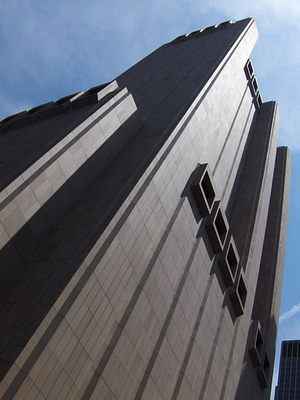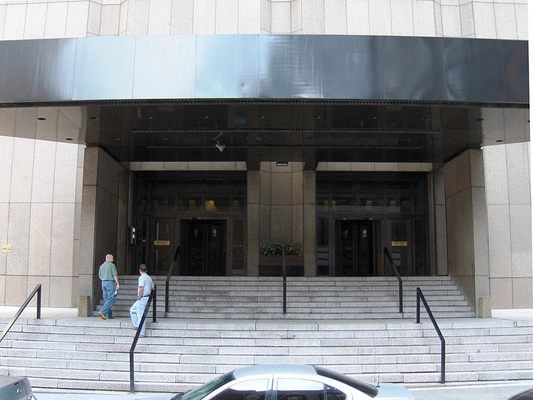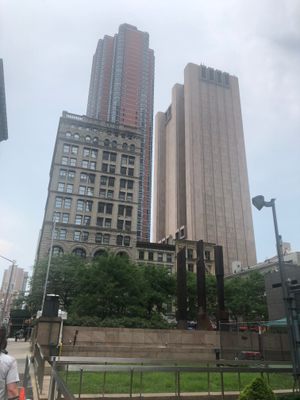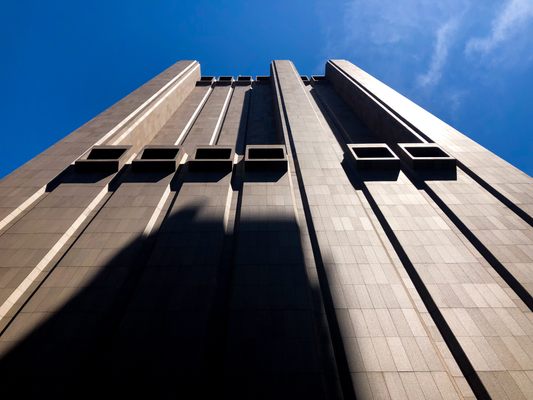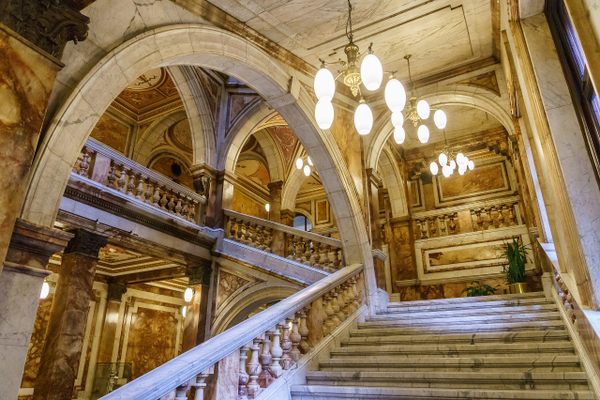About
So you finally noticed that terrifying, windowless skyscraper in the middle of Manhattan? It's fine, really. Now, move along.
Unofficially known as the "Long Lines Building," New York's doom-iest tower was designed in 1974 by architect John Carl Warneke. Though its most noteworthy feature is its utter lack of windows, the building is also known for its unusually high ceilings and for being designed to bear an extremely large amount of weight per square-foot.
Not that the latter two details are something the average citizen would ever be privy to witnessing on their own, of course. The name "Long Lines" suggests a lovely hat tip to the building's architectural elements, but in reality the sky fortress was originally created to house AT&T's carrier exchanges for their long distance telephone switches and equipment. Today it continues in that purpose, while also storing a portion of the company's datacenter processing. This ephemeral element of the technological infrastructure has been deemed so important that the building is able to survive nuclear fallout and exist off-grid for up to two weeks without issue.
What's more, it's since come to light that this ominous building is used as a hub for NSA spying—a brick-and-mortar arm of the surveillance state. As reported by The Intercept, the fortified skyscraper was not only made to safeguard critical telecommunications equipment, a sort of fortress for the information age, but it also houses equipment for controversial government data collection and wire tapping, codenamed TITANPOINTE.
One look at the skyscraper's face should tell you that public admittance isn't an option. But that beautiful, terrifying image you have in your head of stories upon stories of telephone cables and digital boxes stacked 18-feet high, glowing within the building's impenetrable walls, might just be better than the real thing, anyway.
Related Tags
Community Contributors
Added By
Published
September 1, 2015
